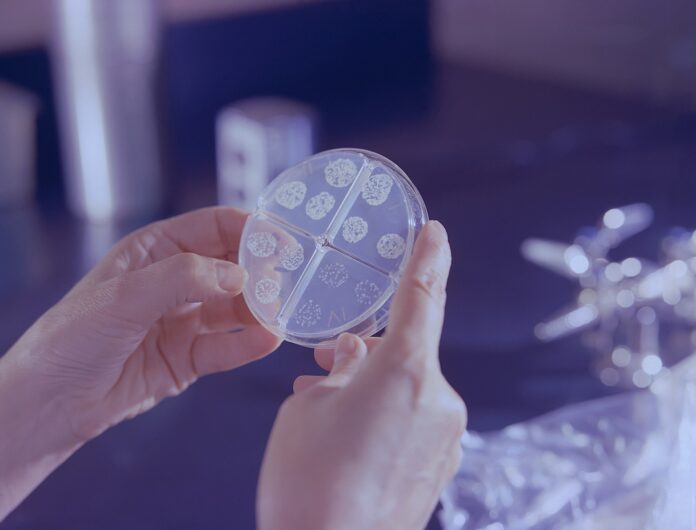Ultraviolet (UV) light has become a useful instrument for lowering microorganisms and enhancing cleanliness. This article examines the several applications of UV lighting for efficient bacterial elimination in diverse contexts.
Understanding UV Light’s Bacteria-Fighting Mechanism
By causing damage to the DNA and RNA of bacteria, viruses, and other microbes, ultraviolet light functions as an effective disinfectant by upsetting their genetic elements. This technique essentially causes these germs to die out by making them incapable of reproducing. UVC LED devices and UVC germicidal lamps are the two main types of UV light disinfection. This mechanism’s unique benefit is that it reduces the need for disinfectants made from chemicals, making it a sustainable and environmentally benign option for reducing bacteria.
UV Light for Purifying Water
Significant health risks are posed by bacteria and viruses found in water sources. UV water purifiers are becoming a popular option to address this problem, especially in areas where there are issues with access to clean and safe drinking water. Water is disinfected by using UV-C radiation, which successfully makes dangerous germs dormant. These systems are frequently used to guarantee the supply of clean, safe water in homes, hospitals, and other commercial settings. They offer a sensible and affordable method of preserving public health.
UV Lights for Air Purification
The quantity of airborne germs and viruses may be decreased by using UV lamps in air purification systems, which is why indoor air quality is such a critical issue. A reliable method of eliminating germs is using UV-C lamps, which may be integrated into standalone air purifiers or HVAC systems. Via the UV-irradiated zone, which renders dangerous germs and viruses harmless, air flows throughout the system. Managing air quality is a major priority in healthcare institutions, where this application is very helpful.
UV Light for Surface Disinfection
The use of a UV light sanitizer has increased significantly as a practical way to lessen microorganisms on a variety of surfaces. These sanitization tools come in a variety of shapes and sizes, including UV boxes and portable wands. They release UV-C light, which is applied sparingly to surfaces in order to render viruses, fungi, and bacteria inactive. These gadgets offer a quick and efficient method of disinfecting electronics, medical equipment, and personal belongings as they find use in homes, hospitals, and commercial settings. Because of their effectiveness, UV sanitizers are a crucial part of encouraging hygiene and avoiding cross-contamination.
UV Light in the Food and Beverage Industry
To guarantee food safety and avoid contamination, those in the food and beverage sector must uphold strict cleanliness requirements. One essential component of the industry’s sanitary practices is UV light. It is used to sterilize and disinfect a variety of objects, such as packing materials, food contact surfaces, and water used in food processing. By reducing the possibility of bacterial contamination, UV treatment contributes to the public’s safety when it comes to consumable goods. Moreover, the use of UV light increases the longevity of food items by getting rid of dangerous microbes that cause spoiling.
Hospitals and UV-C Disinfection
UV-C light technology is being used by healthcare organizations, especially hospitals, to clean patient rooms and medical supplies thoroughly. Robots and equipment with UV-C capabilities are made expressly to target high-touch surfaces and other potential hotspots for germs and infections. Hospitals may dramatically lower the frequency of diseases linked to healthcare by adding UV-C disinfection to their standard cleaning techniques. This strategy is especially important in a setting where patient and healthcare worker safety depends heavily on infection control.
The Future of UV Light in Bacteria Reduction
UV radiation has a bright future in terms of reducing microorganisms since studies into its uses in several contexts are still being conducted. UV light solutions are set to become increasingly more adaptable as technology develops and becomes more widely available, economical, and efficient. They will provide efficient bacterial reduction and enhanced cleanliness across a variety of sectors. UV light is a vital weapon in the fight against germs and infectious illnesses since UV sanitizers, air purifiers, and water purification systems are constantly evolving and finding uses in a variety of industries. UV radiation is still a valuable ally in our fight for a safer, cleaner, and healthier environment as we adjust to a changing global landscape.
Conclusion
To sum up, UV lamps have shown to be a strong and useful instrument for lowering bacteria in a variety of environments. You can better understand UV disinfection’s efficacy if you comprehend its underlying processes, such as its capacity to break germs’ DNA and RNA. This rise represents a healthy trend toward better cleanliness habits and more effective bacterial elimination, with UV lighting being essential for preserving our health and well-being.









